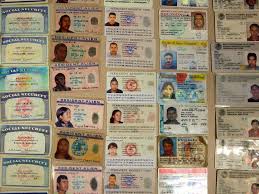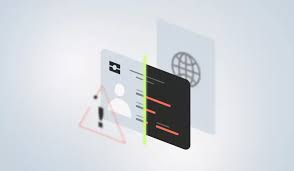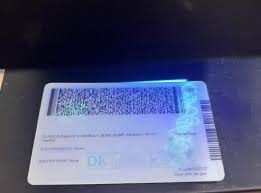best Ontario Fake ID
Outline
- Introduction
- H1: The Popularity of Fake IDs in Ontario
- Overview of Fake IDs in Ontario
- Why People Look for Fake IDs
- Understanding Fake IDs
- H2: What Is a Fake ID?
- H3: Types of Fake IDs Available
- Realistic Replicas
- Novelty IDs
- Digital IDs
- Reasons for Using Fake IDs
- H2: Why Do People Use Fake IDs in Ontario?
- H3: Age Restrictions
- H3: Access to Entertainment
- H3: Peer Pressure and Social Acceptance
- The Legal Consequences of Using a Fake ID
- H2: What Are the Legal Risks?
- H3: Fines and Penalties
- H3: Criminal Record
- H3: Impact on Future Opportunities
- How Fake IDs Are Made
- H2: The Process of Creating a Fake ID
- H3: Materials Used
- H3: Technological Advancements in Fake ID Production
- Spotting a Fake ID
- H2: How Authorities Identify Fake IDs
- H3: Security Features to Look For
- H3: Common Mistakes in Fake IDs
- The Risk of Getting Caught
- H2: How Likely Are You to Get Caught with a Fake ID?
- H3: Detection Methods
- H3: Increased Surveillance in Ontario
- Alternatives to Using a Fake ID
- H2: Safer Options Instead of Using a Fake ID
- H3: Wait Until Legal Age
- H3: Enjoy Age-Appropriate Activities
- The Ethics of Using Fake IDs
- H2: Is It Worth the Risk?
- H3: Moral and Ethical Considerations
- H3: The Impact on Businesses and Society
The Underground Market for Fake IDs
- H2: Where Do People Get Fake IDs?
- H3: Online Vendors
- H3: Local Connections
The Role of Technology in Fake IDs
- H2: How Technology Has Changed the Game
- H3: Advanced Printing Techniques
- H3: The Role of Blockchain and Digital Security
Case Studies and Real-Life Stories
- H2: Examples of Consequences Faced by Fake ID Users
- H3: Real-Life Legal Cases in Ontario
- H3: Personal Accounts from Those Caught
Future of Fake IDs
- H2: What Does the Future Hold for Fake IDs?
- H3: Stronger Security Measures
- H3: Potential Legal Changes
Conclusion
- H2: Final Thoughts on the Use of Fake IDs in Ontario
FAQs
- H2: Frequently Asked Questions
- H3: Is it illegal to own a fake ID in Ontario?
- H3: What should I do if I get caught with a fake ID?
- H3: How do authorities detect fake IDs?
- H3: Can a fake ID affect my future employment?
- H3: Are there safer alternatives to using a fake ID?
Best Ontario Fake ID
The Popularity of Fake IDs in Ontario
In Ontario, fake IDs have become increasingly popular, especially among the younger crowd. Whether it’s the allure of attending an exclusive event or just the thrill of breaking the rules, the demand for fake identification continues to rise. But why do people in Ontario specifically turn to fake IDs, and what are the risks involved?

Understanding Fake IDs
What Is a Fake ID?
A fake ID is essentially any form of identification that has been altered or forged to misrepresent a person's age or identity. These can range from high-quality replicas of government-issued IDs to novelty cards that are not intended for legitimate use.
Types of Fake IDs Available
Fake IDs come in various forms, depending on the level of realism and the intended use.
- Realistic Replicas: These are the most common and closely mimic official IDs. They often include holograms, barcodes, and other security features that make them difficult to distinguish from the real thing.
- Novelty IDs: These are typically used for fun or as a joke and are not meant to be taken seriously. They lack the sophisticated features found in realistic replicas.
- Digital IDs: With the advancement of technology, digital fake IDs have emerged. These are used on smartphones and other devices, mimicking digital wallets or apps that store legitimate identification.
Reasons for Using Fake IDs
Why Do People Use Fake IDs in Ontario?
People use fake IDs for various reasons, but the most common motivations are related to age restrictions and social pressures.
Age Restrictions
The legal drinking age in Ontario is 19, which means that many underage individuals might be tempted to use a fake ID to gain access to alcohol, bars, or clubs. This desire to bypass age restrictions is one of the primary drivers behind the demand for fake IDs.
Access to Entertainment
Many events, concerts, and parties have age restrictions that prevent younger people from attending. With a fake ID, these individuals can gain entry to places they wouldn't legally be allowed to enter.
Peer Pressure and Social Acceptance
In social circles, especially among teenagers and young adults, there can be significant pressure to fit in. If everyone else is going to a certain event or venue, those without the legal age might feel left out. A fake ID becomes a ticket to social acceptance.
The Legal Consequences of Using a Fake ID
What Are the Legal Risks?
Using a fake ID in Ontario is not just risky—it's illegal. The consequences can be severe and far-reaching.
Fines and Penalties
If caught with a fake ID, individuals can face hefty fines, often running into hundreds or even thousands of dollars. The exact amount can vary depending on the situation and the individual's past record.
Criminal Record
Beyond fines, getting caught with a fake ID can lead to a criminal record. This can have long-term implications, affecting everything from job prospects to travel opportunities.
Impact on Future Opportunities
A criminal record can follow you for years, making it difficult to secure employment, obtain loans, or even rent an apartment. The short-term gain of using a fake ID is rarely worth the potential long-term damage.
How Fake IDs Are Made
The Process of Creating a Fake ID
Creating a fake ID involves a combination of physical materials and digital technology.
Materials Used
High-quality fake IDs often use materials similar to those used in official IDs, such as polycarbonate. The goal is to replicate the look and feel of a real ID as closely as possible.
Technological Advancements in Fake ID Production
Modern fake IDs are often produced using advanced printing techniques, such as laser engraving and holographic overlays, to mimic security features. Some even use microprinting and ultraviolet ink to make the IDs more convincing.
Spotting a Fake ID
How Authorities Identify Fake IDs
Authorities in Ontario are trained to spot fake IDs, and they use a variety of methods to do so.
Security Features to Look For
Genuine IDs have multiple security features, including holograms, microtext, and UV elements. If any of these features are missing or appear tampered with, the ID is likely fake.
Common Mistakes in Fake IDs
Many fake IDs have small errors that can give them away. These might include misspelled words, incorrect fonts, or poorly aligned text. Even slight variations in the color or design can be a red flag.
The Risk of Getting Caught
How Likely Are You to Get Caught with a Fake ID?
With the increasing sophistication of detection methods, the likelihood of getting caught with a fake ID in Ontario is higher than ever.
Detection Methods
From bouncers at clubs to law enforcement officers, many people are trained to spot fake IDs. They often use specialized equipment like UV lights and magnifying glasses to check for authenticity.
Increased Surveillance in Ontario
Ontario has seen an increase in surveillance and security measures in recent years, particularly in areas known for underage drinking. This heightened scrutiny makes it more likely that fake ID users will be caught.
Alternatives to Using a Fake ID
Safer Options Instead of Using a Fake ID
Rather than risking legal trouble, there are safer and more responsible alternatives to using a fake ID.
Wait Until Legal Age
The simplest solution is to wait until you are of legal age. While this might seem frustrating, it's a safe and legal way to ensure you don't face any consequences.
Enjoy Age-Appropriate Activities
Instead of trying to gain access to restricted venues, focus on activities that are appropriate for your age. There are plenty of fun and exciting things to do that don't require you to break the law.
The Ethics of Using Fake IDs
Is It Worth the Risk?
Using a fake ID might seem like a harmless way to have fun, but it's important to consider the ethical implications.
Moral and Ethical Considerations
When you use a fake ID, you're not just breaking the law—you're also deceiving others and potentially putting businesses at risk. Is that really worth it?
The Impact on Businesses and Society
Fake IDs can harm businesses by putting their licenses at risk if they unknowingly serve underage individuals. This can lead to legal trouble for the business and even closure in extreme cases.
The Underground Market for Fake IDs
Where Do People Get Fake IDs?
The demand for fake IDs has led to a thriving underground market.
Online Vendors
Many people turn to online vendors to purchase fake IDs. These vendors often operate on the dark web and can be difficult to trace.
Local Connections
In some cases, individuals might obtain fake IDs through local connections, such as friends or acquaintances who know someone in the business.
The Role of Technology in Fake IDs
How Technology Has Changed the Game
Technology has made it both easier to produce and harder to detect fake IDs.
Advanced Printing Techniques
High-quality printers and software have made it possible to create fake IDs that are almost indistinguishable from the real thing.
The Role of Blockchain and Digital Security
Some experts believe that blockchain technology could be used in the future to create more secure forms of identification, making it even harder for fake IDs to pass as legitimate.
Case Studies and Real-Life Stories
Examples of Consequences Faced by Fake ID Users
There are numerous cases of individuals who have faced serious consequences after being caught with a fake ID.
Real-Life Legal Cases in Ontario
In Ontario, several high-profile cases have involved fake IDs, leading to significant fines and legal trouble for those involved.
Personal Accounts from Those Caught
Hearing from people who have been caught using fake IDs can be eye-opening. Many regret their decisions and face long-term consequences as a result.
Future of Fake IDs
What Does the Future Hold for Fake IDs?
The future of fake IDs is uncertain, but one thing is clear: the authorities are becoming better equipped to deal with them.
Stronger Security Measures
Governments are continuously working on new security features for IDs to make them harder to replicate.
Potential Legal Changes
There could be legal changes in the future that impose even harsher penalties for those caught using fake IDs.
Conclusion
Fake IDs might offer a quick solution to bypass age restrictions, but they come with significant risks. The legal consequences, potential harm to businesses, and ethical concerns make it clear that using a fake ID is not worth it. It's better to wait until you are of legal age or find other ways to enjoy your time without breaking the law.
Frequently Asked Questions
Is it illegal to own a fake ID in Ontario?
Yes, it is illegal to own or use a fake ID in Ontario. If caught, you could face fines, legal trouble, and a criminal record.
What should I do if I get caught with a fake ID?
If you're caught with a fake ID, it's important to cooperate with authorities. You may want to seek legal advice to understand your rights and the potential consequences.
How do authorities detect fake IDs?
Authorities use a variety of methods, including checking for security features like holograms and UV elements, as well as comparing the ID to official records.
Can a fake ID affect my future employment?
Yes, having a criminal record from using a fake ID can impact your future job prospects, as many employers conduct background checks.
Are there safer alternatives to using a fake ID?
Yes, the safest alternative is to wait until you are of legal age. You can also focus on age-appropriate activities that don't require breaking the law.
 MinnesotaFake ID
MinnesotaFake ID
 KansasFake ID
KansasFake ID
 NevadaFake ID
NevadaFake ID
 IllinoisFake ID
IllinoisFake ID